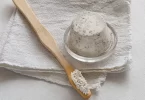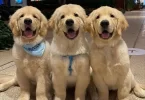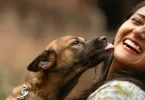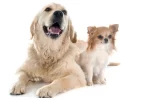Miniature Huskies, often referred to as “Mini Huskies,” are a delightful and captivating breed. They share many characteristics with their larger counterparts but come in a smaller, more manageable size. If you’re considering adding a Mini Husky to your family, or you’re just curious about these fascinating dogs, this article will cover everything you need to know.
Miniature Husky Temperament
Miniature Huskies are known for their friendly and outgoing nature. They are intelligent, playful, and energetic, making them a perfect fit for active families. These dogs are also very social and thrive on companionship, both from humans and other dogs. They are known for their loyalty and form strong bonds with their owners. However, their high energy levels mean they require regular exercise and mental stimulation to prevent boredom.
What Does Miniature Husky Dog Look Like?
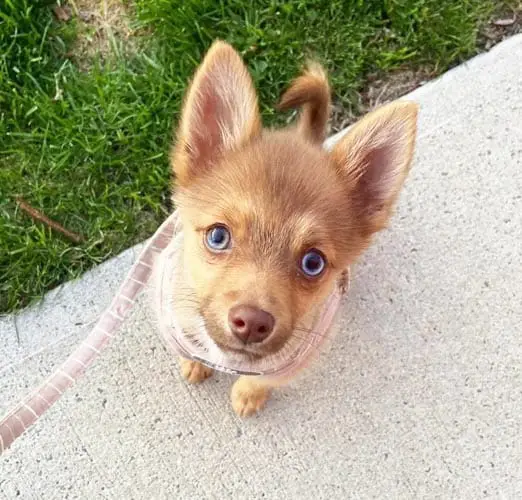
A Miniature Husky looks like a scaled-down version of the Siberian Husky. They typically weigh between 15 to 35 pounds and stand about 13 to 17 inches tall. Their coats are thick and double-layered, designed to withstand cold climates. Mini Huskies come in various colors, including black and white, red and white, gray and white, and even solid white. Their eyes can be blue, brown, or even one of each, adding to their striking appearance.
Fun Facts About Mini Husky
- Small but Mighty: Despite their size, Mini Huskies have the stamina and strength of larger dogs.
- Chatty Canines: They are known for their vocalizations, including howls, barks, and even talking-like sounds.
- Escape Artists: Their intelligence makes them adept at escaping from confined spaces.
- Cold Lovers: They thrive in colder climates due to their dense double coat.
- Family-Oriented: Mini Huskies are very social and enjoy being part of family activities.
Advantages and Disadvantages of Miniature Husky
Advantages
- Size: Their smaller size makes them suitable for apartment living.
- Personality: They are friendly, energetic, and good with children and other pets.
- Appearance: Their striking looks and beautiful coat make them stand out.
Disadvantages
- Exercise Needs: They require a lot of physical activity and mental stimulation.
- Shedding: Their thick coat sheds heavily, especially during seasonal changes.
- Training: They can be stubborn and require consistent training.
Health Problems of Miniature Husky
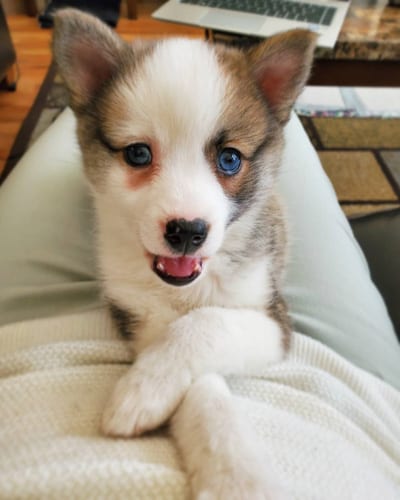
Miniature Huskies are generally healthy dogs, but they are prone to some health issues. Common problems include hip dysplasia, eye conditions like cataracts and progressive retinal atrophy, and skin conditions such as dermatitis. Regular vet check-ups and a healthy diet can help manage these issues.
How to Get Miniature Husky Dogs
When looking to get a Miniature Husky, it’s crucial to find a responsible breeder. Ensure the breeder has a good reputation and can provide health clearances for the puppy’s parents. Avoid puppy mills or pet stores, as these sources often prioritize profit over the health and well-being of the dogs.
Proper Care for Mini Husky
Daily Care
- Exercise: Mini Huskies need at least 1-2 hours of exercise daily. This can include walks, playtime, and mental stimulation activities.
- Feeding: A balanced diet with high-quality dog food is essential.
- Social Interaction: Spend time with your Mini Husky to prevent loneliness and boredom.
Long-term Care
- Grooming: Regular grooming helps manage shedding and keeps their coat healthy.
- Health Check-ups: Regular vet visits are crucial to monitor and maintain their health.
- Training: Ongoing training and socialization are important for their mental well-being.
How Do Mini Huskies Exercise?
Mini Huskies are highly energetic and require plenty of exercise. Daily walks, runs, and play sessions are a must. They also enjoy activities that challenge their minds, such as puzzle toys and agility training. If you have a yard, ensure it’s securely fenced, as they can be escape artists.
Nutrition and Feeding
A Mini Husky’s diet should consist of high-quality commercial dog food or a well-balanced homemade diet. Protein is essential for their active lifestyle, and you should also include fats, carbohydrates, vitamins, and minerals. Consult your vet for specific dietary recommendations based on your dog’s age, weight, and activity level.
Do Huskies Need to be Groomed?
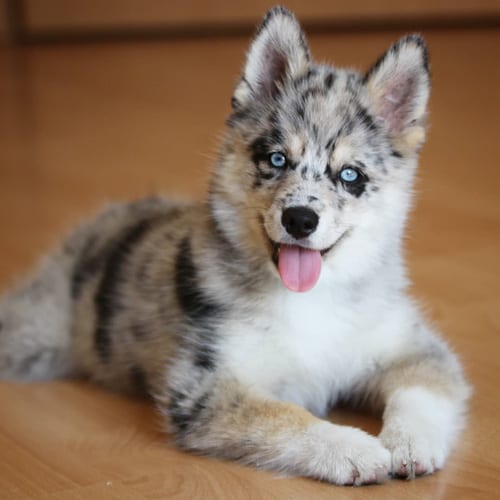
Yes, Mini Huskies require regular grooming to keep their coat in good condition. Brush them at least twice a week to manage shedding and prevent mats and tangles. During shedding season, daily brushing may be necessary. Bathing should be done as needed, but not too frequently, as it can strip their coat of natural oils.
Training Your Mini Husky
Training a Mini Husky can be challenging due to their independent and sometimes stubborn nature. Start training early and be consistent. Positive reinforcement techniques, such as treats and praise, work best. Socialization is also crucial, so expose them to different environments, people, and other animals from a young age.
Is Miniature Husky A Good Family Dog?
Miniature Huskies can make excellent family dogs. They are friendly, playful, and get along well with children and other pets. Their social nature means they enjoy being part of family activities and can be very affectionate. However, they do require a lot of attention and exercise, so they’re best suited for active families.
Will a Mini Husky Protect You?
While Mini Huskies are friendly and social, they are not typically known for their protective instincts. They may alert you to strangers with their vocalizations, but they are generally too friendly to be effective guard dogs.
Can They Live in a Hot Climate?
Mini Huskies are built for cold climates, so they can struggle in hot weather. If you live in a warmer area, take precautions to keep your dog cool. Provide plenty of water, avoid exercise during the hottest parts of the day, and ensure they have a cool place to rest.
Is it Difficult to Train Miniature Husky?
Training a Mini Husky can be challenging due to their independent streak. They are intelligent but can be stubborn, so consistent, positive reinforcement training is essential. Patience and persistence are key.
Is a Miniature Husky Good as a Pet?
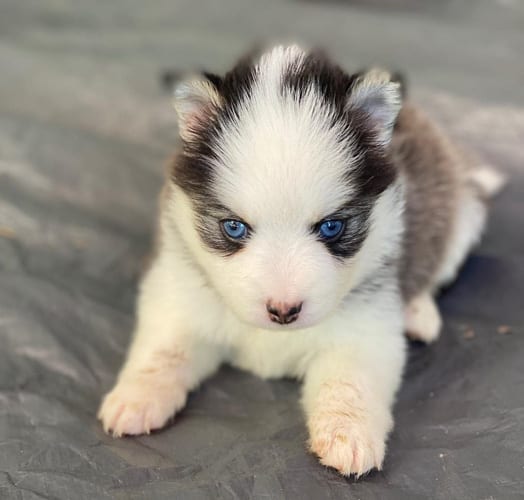
Yes, Miniature Huskies can be wonderful pets for the right owner. They are loyal, friendly, and full of energy. However, they require a lot of attention, exercise, and training. If you can meet their needs, they make loving and entertaining companions.
Finding a Responsible Breeder
When looking for a Miniature Husky, finding a responsible breeder is crucial. Look for breeders who prioritize the health and well-being of their dogs. Ask for health clearances, visit the breeding facility if possible, and ensure the breeder is knowledgeable and transparent about their breeding practices. Avoid buying from pet stores or puppy mills, as these often prioritize profit over the dogs’ welfare.
Conclusion
Miniature Huskies are captivating, energetic, and affectionate dogs that can make excellent companions for the right families. Their striking appearance and friendly nature make them stand out, but they do require a significant commitment in terms of exercise, grooming, and training. If you’re considering adding a Mini Husky to your family, be prepared for a lively and rewarding experience.
FAQs
- How much exercise does a Mini Husky need? Mini Huskies need at least 1-2 hours of exercise daily, including walks, runs, and playtime.
- Are Mini Huskies good with children? Yes, they are friendly and playful, making them great companions for children.
- Do Mini Huskies shed a lot? Yes, they have a thick double coat that sheds heavily, especially during seasonal changes.
- Can Mini Huskies live in apartments? Yes, their smaller size makes them suitable for apartment living, provided they get enough exercise.
- What should I feed my Mini Husky? A balanced diet of high-quality commercial dog food or a well-balanced homemade diet is ideal. Consult your vet for specific dietary recommendations.
